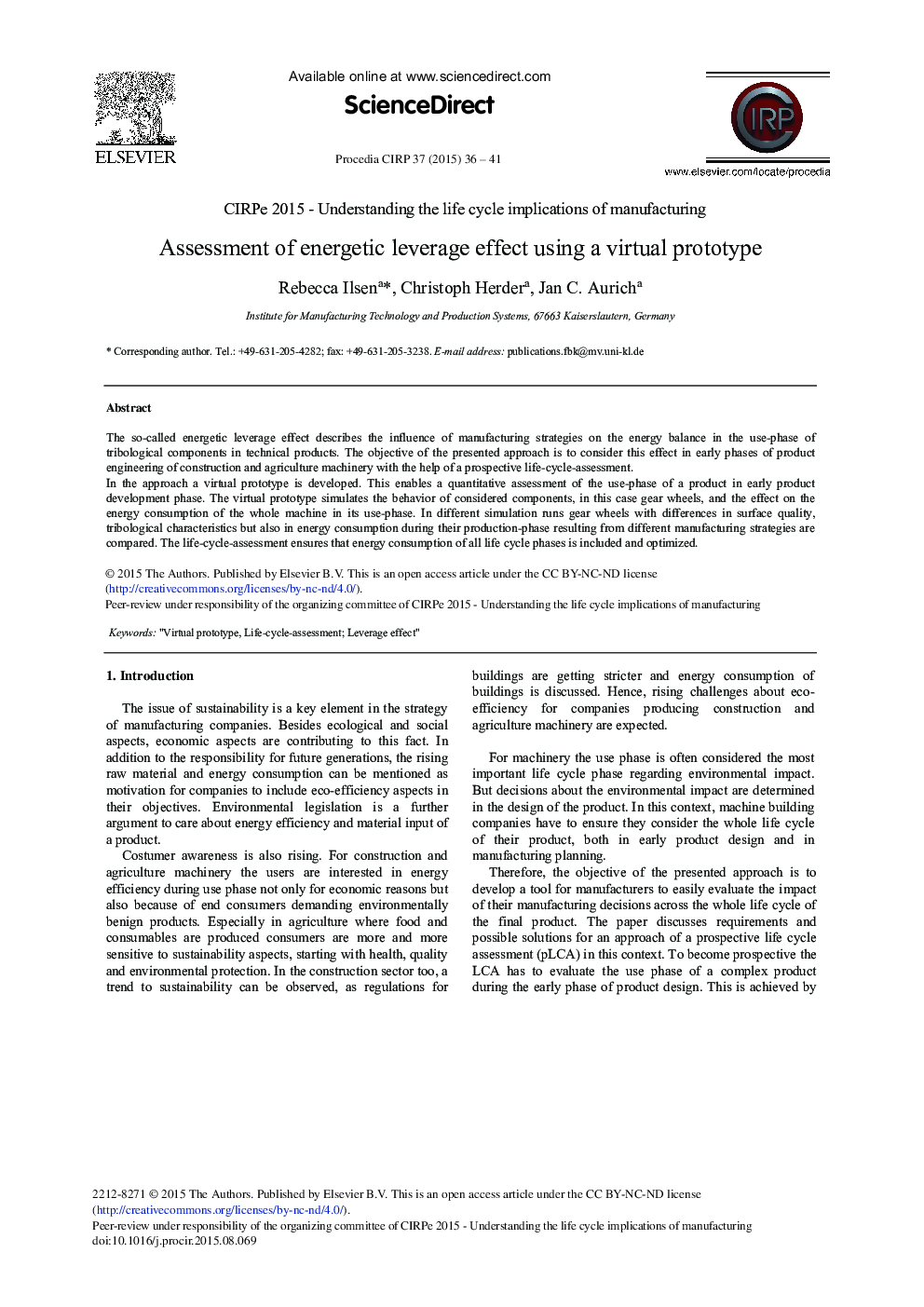| Article ID | Journal | Published Year | Pages | File Type |
|---|---|---|---|---|
| 1699213 | Procedia CIRP | 2015 | 6 Pages |
The so-called energetic leverage effect describes the influence of manufacturing strategies on the energy balance in the use-phase of tribological components in technical products. The objective of the presented approach is to consider this effect in early phases of product engineering of construction and agriculture machinery with the help of a prospective life-cycle-assessment.In the approach a virtual prototype is developed. This enables a quantitative assessment of the use-phase of a product in early product development phase. The virtual prototype simulates the behavior of considered components, in this case gear wheels, and the effect on the energy consumption of the whole machine in its use-phase. In different simulation runs gear wheels with differences in surface quality, tribological characteristics but also in energy consumption during their production-phase resulting from different manufacturing strategies are compared. The life-cycle-assessment ensures that energy consumption of all life cycle phases is included and optimized.
